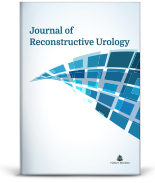Objective: In this study, we aimed to compare the efficacy, complications, and financial aspects of urgent ureteroscopy (URS) with elective URS in patients who applied with the acute flank pain caused by ureteral calculi. Material and Methods: The records of 70 adult patients, who applied to the emergency and urology department at Gata Haydarpasa Research and Training Hospital between June 2012 and May 2014 evaluated prospectively. Patients were divided into two group including the patients with colic pain that had started within 12 hours before admission who also agreed to be operated urgently (Group 1: acute URS) and the patients who requested the necessary intervention only if spontaneous passage cannot be provided (Group 2: elective URS). Kidney, ureter, bladder radiography (KUB), and urinary ultrasonography (USG) were applied to all patients. A total of 16 urgent and 19 elective URSs were performed. Results: The average treatment cost of the urgent URS patients was found to be 855.00 TL (143.78 ?) per payment, and the average treatment cost of the elective URS patients was found to be 979.00 TL (164.63 ?) (p<0.001) per patient. These results were statistically significant. Conclusion: Urgent URS is a treatment modality that requires minimal additional treatment. Besides, the patients can turn back to their social activities earlier, and it also reduces the psychological side-effects of urolithiasis. Although the superiority of one method over another cannot be concluded with this study, the application of urgent URS costs less compared to elective URS.
Keywords: Ureteral calculi; endoscopy; emergency treatment; elective surgical procedures, treatment outcome
Amaç: Bu çalışmada akut böbrek koliği nedeniyle başvuran üreter taşlı hastalarda acil üreteroskopinin (URS), elektif URS ile etkinlik, komplikasyon ve finansal yönlerini karşılaştırmayı amaçladık. Gereç ve Yöntemler: Haziran 2012-Mayıs 2014 tarihleri arasında Gata Haydarpaşa Eğitim ve Araştırma Hastanesinde acil ve üroloji bölümüne başvuran 70 yetişkin hastanın kayıtları prospektif olarak değerlendirildi. Hastalar iki gruba ayrıldı. Grup 1 (akut URS): kolik ağrısı başvurudan önce 12 saat içinde başlamış ve acil olarak ameliyat olmayı kabul eden hastalar. Grup 2 (elektif URS): Spontan taşlarını düşüremeyip elektif ameliyat olmak hastalar. Tüm hastalara direkt grafi ve üriner ultrasonografi uyguladı. Toplamda 16 acil, 19 elektif URS vakası değerlendirilip karşılaştırıldık. Bulgular: Acil URS hastalarının ortalama tedavi maliyeti ödeme başına 855,00 TL (143,78 ?), elektif URS hastalarının ortalama tedavi maliyeti 979,00 TL (164,63 ?) olarak bulundu (p<0,001). Bu sonuçlar istatistiksel olarak anlamlıydı. Sonuç: Akut URS ile hastaların ek tedavi ihtiyacı azalmakta ve daha hızlı sosyal aktivitelerine geri dönebilmektedir. Böylelikle taş hastalığının oluşturduğu psikolojik yan etkiler de en düşük seviyeye inmektedir. Her ne kadar akut ve elektif URS etkinlik olarak istatiksel fark göstermese de akut URS daha düşük maliyet profili ile dikkat çekmektedir.
Anahtar Kelimeler: Üreter taşları; endoskopi; acil tedavi; elektif cerrahi işlemler; tedavi sonucu
- López M, Hoppe B. History, epidemiology and regional diversities of urolithiasis. Pediatr Nephrol. 2010;25(1):49-59.[Crossref] [PubMed] [PMC]
- Lyu J, Wu R. [A brief history of recognition on urolithiasis before medieval period]. Zhonghua Yi Shi Za Zhi. 2014;44(1):36-9.[PubMed]
- Ludwig W.W, Matlaga B.R. Urinary stone disease: diagnosis, medical therapy, and surgical management. Med Clin North Am. 2018;102(2):265-277.[Crossref] [PubMed]
- Türk C, Petřík A, Sarica K, Seitz C, Skolarikos A, Straub M, Knoll T. EAU guidelines on diagnosis and conservative management of urolithiasis. Eur Urol. 2016;69(3):468-74.[Crossref] [PubMed]
- Grosse A, Grosse C. Bildgebungsmodalitäten und Therapieoptionen bei Patienten mit akutem Flankenschmerz [Imaging modalities and therapy options in patients with acute flank pain]. Radiologe. 2014 ;54(7):700-14.[Crossref] [PubMed]
- Cybulski P.A, Joo H, Honey R.J. Ureteroscopy: anesthetic considerations. Urol Clin North Am. 2004;31(1):43-7.[Crossref] [PubMed]
- Patel N, Monga M. Ureteral access sheaths: a comprehensive comparison of physical and mechanical properties. Int Braz J Urol. 2018;44(3):524-535.[Crossref] [PubMed] [PMC]
- Boulalas I, De Dominicis M, Defidio L. Semirigid ureteroscopy prior retrograde intrarenal surgery (RIRS) helps to select the right ureteral access sheath. Arch Ital Urol Androl. 2018;90(1):20-24.[Crossref] [PubMed]
- Straub M, Bader M, Strittmatter F. Management des Uretersteins [Management of ureteral stones]. Urologe A. 2013;52(3):415-26.[Crossref] [PubMed]
- Türk C, Petřík A, Sarica K, Seitz C, Skolarikos A, Straub M, et al. EAU Guidelines on Diagnosis and Conservative Management of Urolithiasis Eur Urol. 2016;69(3):468-74.[Crossref] [PubMed]
- Geraghty RM, Jones P, Herrmann TRW, Aboumarzouk O, Somani BK. Ureteroscopy is more cost effective than shock wave lithotripsy for stone treatment: systematic review and meta-analysis. World J Urol. 2018;36(11): 1783-93.[Crossref] [PubMed] [PMC]
- Nabi G, Downey P, Keeley F, Watson G, McClinton S. Extra-corporeal shock wave lithotripsy (ESWL) versus ureteroscopic management for ureteric calculi. Cochrane Database Syst Rev. 2007;(1):CD006029.Update in: Cochrane Database Syst Rev. 2011;(12):CD006029.[Crossref] [PubMed]
- Tran TY, Hernandez Bustos N, Kambadakone A, Eisner B, Pareek G. Emergency ureteral stone treatment score predicts outcomes of ureteroscopic intervention in acute obstructive uropathy secondary to urolithiasis. J Endourol. 2017;31(9):829-834.[Crossref] [PubMed]
- Al-Ghazo MA, Ghalayini IF, Al-Azab RS, Bani Hani O, Bani-Hani I, Abuharfil M, Haddad Y. Emergency ureteroscopic lithotripsy in acute renal colic caused by ureteral calculi: a retrospective study. Urol Res. 2011;39(6):497-501.[Crossref] [PubMed]
- Yang S, Qian H, Song C, Xia Y, Cheng F, Zhang C. Emergency ureteroscopic treatment for upper urinary tract calculi obstruction associated with acute renal failure: feasible or not? J Endourol. 2010;24(11):1721-4.[Crossref] [PubMed]
- Matani YS, Al-Ghazo MA, Al-Azab RS, Hani O.B, Ghalayini I.F, Hani I.B. Emergency versus elective ureteroscopic treatment of ureteral stones. Can Urol Assoc J. 2013;7(7-8):E470-4.[Crossref] [PubMed] [PMC]
- Youn JH, Kim SS, Yu JH, Sung LH, Noh CH, Chung JY. Efficacy and safety of emergency ureteroscopic management of ureteral calculi. Korean J Urol. 2012;53(9):632-5.[Crossref] [PubMed] [PMC]
- Sarica K, Tanrıverdi O, Aydin M, Koyuncu H, Miroglu C. Emergency ureteroscopic removal of ureteral calculi after first colic attack: Is there any advantage? Urology, 2011;78(3): 516-20.[Crossref] [PubMed]
- Rombi T, Triantafyllidis A, Fotas A, Konstantinidis T, Touloupidis S. Socioeconomic evaluation of the treatment of ureteral lithiasis. Hippokratia. 2011;15(3):252-7.[PubMed] [PMC]
- Parker BD, Frederick RW, Reilly TP, Lowry PS, Bird ET. Efficiency and cost of treating proximal ureteral stones: shock wave lithotripsy versus ureteroscopy plus holmium: yttrium-aluminum-garnet laser. Urology. 2004; 64(6):1102-6; discussion 1106.[Crossref] [PubMed]







.: Process List